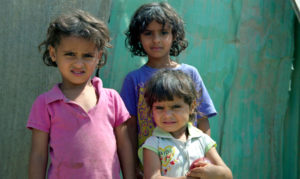
Technical Assistance for Implementation of Civil Society Dialogue and Civil Society Support Programmes (TR2015/DG/01/A5-01/001)
The overall aim of the project is to increase bilateral exchanges and cooperation between CSOs in Turkey and the EU at local, regional and national levels, to promote awareness raising initiatives on importance and benefits of membership of Turkey to the EU within Turkey and EU and on

Technical Assistance for Building the Capacity of EU Affairs in the Governorates
It is very beneficial to strengthen the quality of information on EU issues for all stakeholders and to improve the capacity of the Administration at the local level to support the management of EU funds and engagement in the accession process. Thus, the project assisted in increasing the

Technical Assistance for Sorgun Enterprise Development Centre (İŞGEM)
This project was a component of the Regional Competitiveness Operational Programme which is part of the Instrument for Pre-Accession and is designed to support Turkey’s convergence with the EU by increasing the competitiveness of the Turkish economy and reducing regional socio-economic disparities. The project was designed to provide

Technical Assistance for Result Oriented Monitoring in Turkey-Phase III
Within the scope of this project, we are aiming to ensure efficient and effective of IPA II assistance with a view to better achievement of the objectives set out in the Indicative Strategy Paper of Turkey (2014-2020) and assist NIPAC to fulfil his extended monitoring responsibility.

Reinforcement of the National Social Security Fund (NSSF) in Lebanon
In Lebanon, there is no comprehensive national policy to fight poverty and a particular, effective social security system for poor people. Without improvements, Lebanon cannot hope to move towards realistically integrated and adequate social protection interventions. Thus, the project aimed to contribute to improving the quality and coverage

Capacity Development of Employees and Employers via Information and Communication Technologies (ICT)
In Turkey, in common with all other countries, both employers and employees need to be aware of, and be able to use, the latest ICT tools in the workplace to improve the efficiency and competitiveness of their businesses and take best advantage of personal development opportunities. This project,

